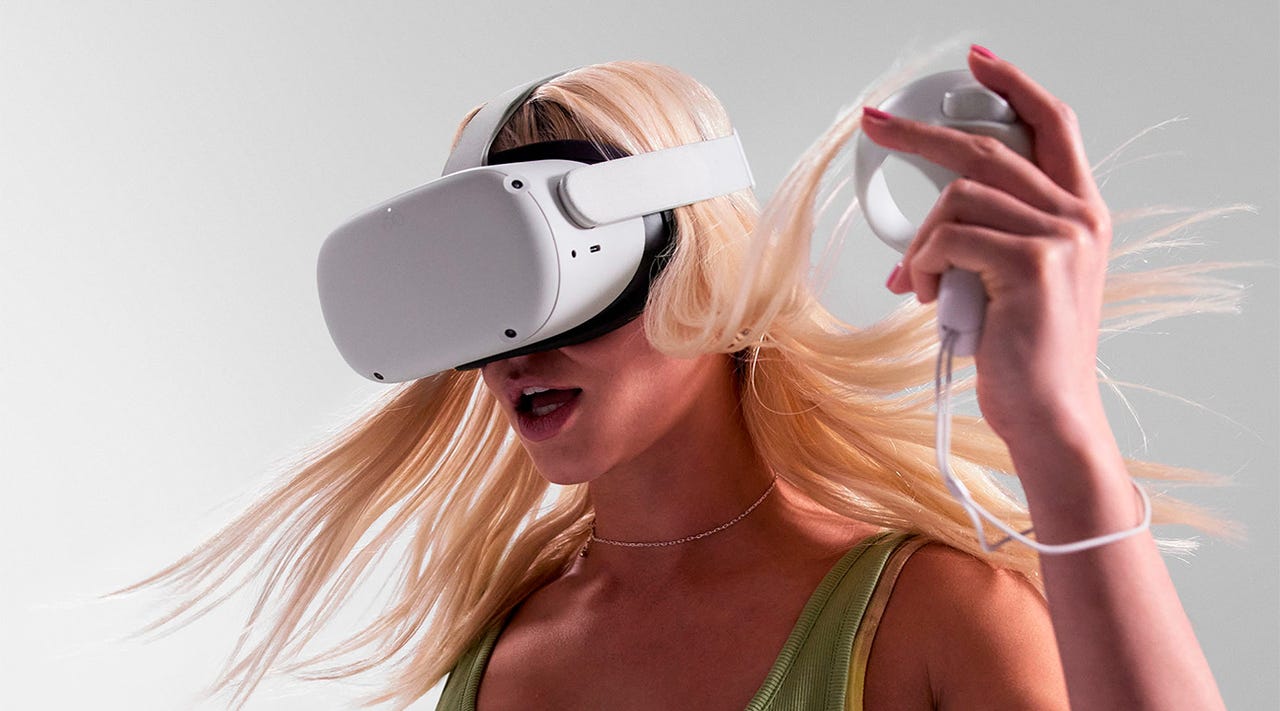Meta lowered the age limit for Quest accounts. Are these kids too young for exploring VR?


Your ten-year-old may now rock a Meta Quest headset. With your permission.
Last week, Meta announced that parents could create Meta Quest accounts for their children aged 10 to 12, ditching the previous 13 and up age requirement. Meta says these parent-managed accounts will require preteens to obtain a parent's permission before downloading apps and accepting follow requests.
Also: Are VR headsets safe for kids and teenagers? Here's what the experts say
A parent-managed Meta account allows parents to create screen time limits. Parents can also use a casting feature that projects their child's VR experience to a phone or TV, allowing them to see what their child sees while using a Quest headset.
Meta says that the company will not use a preteen's data to target them with ads but will collect their data to "deliver an age-appropriate experience."
Parents can choose if they want their child's data analyzed by Meta to create such an experience, and all data associated with their child's account is deleted when the account is deleted.
Still, Meta collects data on 10- to 12-year-old children, such as their geolocation and any photos or audio content the company receives from a child's device. Parents must consent to Meta collecting this information to comply with US child privacy laws.
Also: The best parental control apps
Meta Horizon Worlds, Meta's open-world VR experience, will remain unavailable to children under 13 to decrease their likelihood of interacting with predators.
However, it's unclear how prolonged exposure to VR could affect a preteen's developing eyes and brain, which continue to develop until an individual reaches their mid to late 20s.
Meta's Oculus Safety Center advises that children under 13 don't use Meta VR Systems because "younger children have greater risks of injury and adverse effects than older users."
Also: Best tablets for kids: Parent and expert picks
Last month, the US Surgeon General released an advisory that detailed how prolonged social media use can affect a preteen's mental health and social development. The same advisory stated that prolonged smartphone use could affect a preteen's physical health, presenting a "profound risk" to this age group.
The advisory acknowledged that the data to fully understand how social media and smartphone use can negatively impact preteens is insufficient, and even less research exists about the possible harm extensive VR use could cause.
But as generative AI takes over, the tech industry turned its attention away from the metaverse to invest in the new technology. Even Meta CEO Mark Zuckerberg acknowledged that investing in AI technologies needed to take precedence over developing the metaverse.
Also: US Surgeon General releases social media health advisory for American teens and tweens
So if the metaverse isn't what we thought it would be, why should kids be interested? Social Media Today says opening the metaverse and encouraging heads-up gear for children could be a long-term business move for Meta.
Kids today are enthralled by open-world, customizable universe-like games such as Roblox, Fortnite, and Minecraft. Meta may realize that adults aren't their target audience and could find more success in priming the next generation for VR-based gaming and social connection.